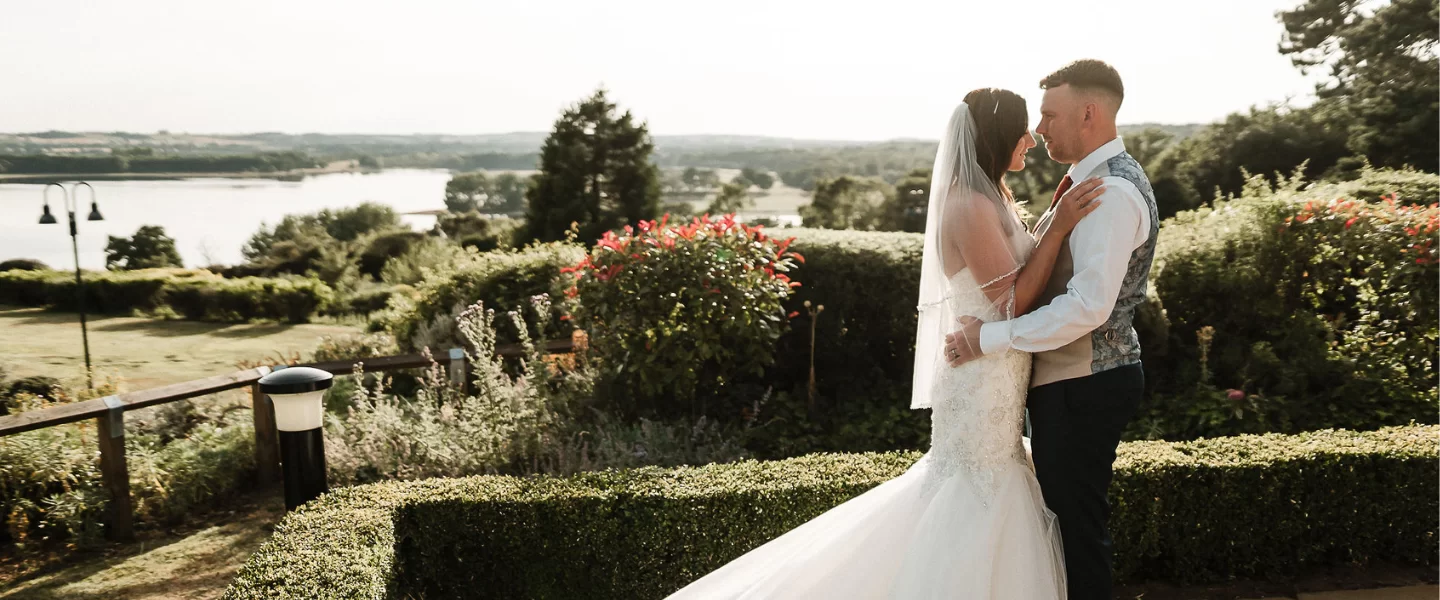Are you planning your dream wedding?
Filled with romantic and fantastic ideas, your wedding planning journey is a beautiful one, that helps you harness the love you’re feeling and pour it into a celebration of commitment and joy.
While this time is an exciting one, it often involves careful financial planning.
So, it’s important to create a wedding budget before anything else. This helps you allocate your funds wisely, while ensuring a spectacular and memorable day…
Here’s your helpful guide on how to set a wedding budget that suits both your vision and financial capacity:
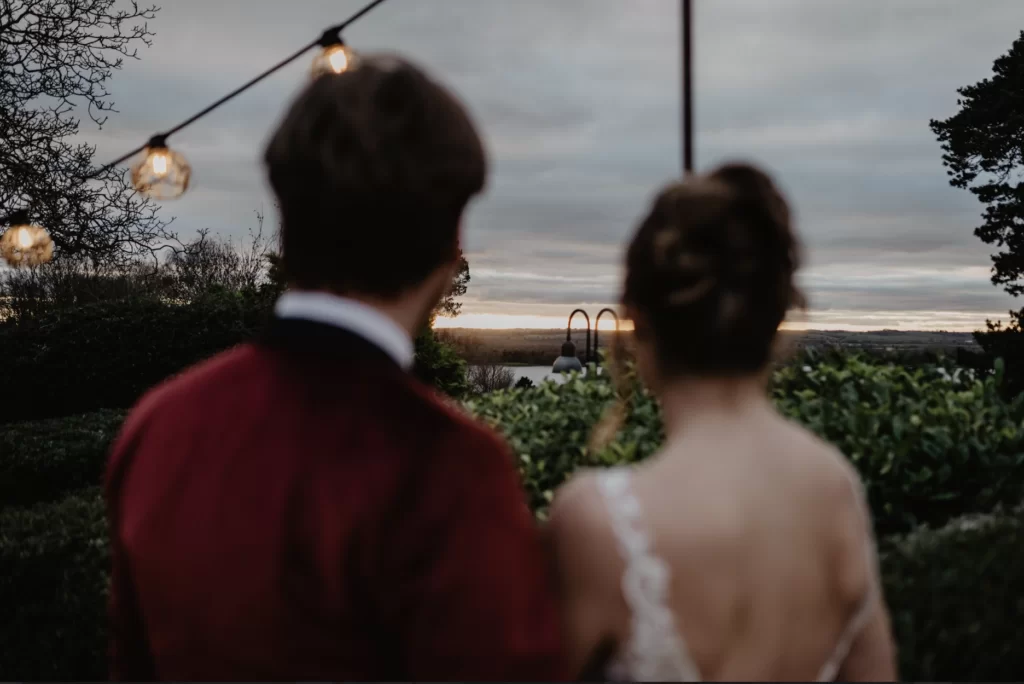
How to Budget for a Wedding: Start Early
When it comes to creating a wedding budget, it’s a good idea to start by setting a realistic timeline for your wedding.
Whether you’re planning a year in advance or opting for a quick elopement, establishing a clear timeline helps in allocating funds accordingly.
This also gives you an idea of how long you have to save for any little (or big) extras you might want!

Determine Your Total Budget:
Sit down with your partner and any involved contributors (if applicable) to discuss the total amount you’re comfortable spending on your wedding.
It’s important to be realistic and consider factors like savings, contributions, and any potential loans or assistance.
We recommend factoring in that there might be some unexpected costs, so always keep that in mind when creating your budget; remember, you don’t have to spend it — you just need to prepare for it!
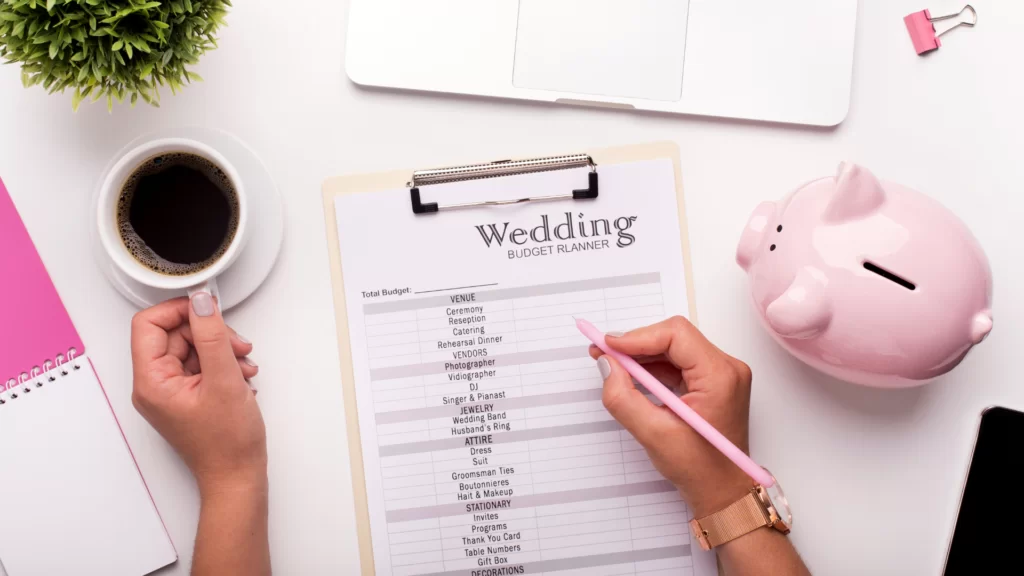
How to Set a Wedding Budget: Prioritise the Important Bits
While you might have some grand ideas for the reception, it’s essential to first identify your top priorities for the wedding.
Allocate a larger portion of your budget to aspects that matter most to you, whether it’s the venue, photography or entertainment.
Once these are accounted for, you can then start looking at additional ideas, and working out if you have enough left to cover these costs.

How to Plan a Wedding Budget: Break It Down
Dividing your budget into categories (such as venue, catering, attire, photography, entertainment, decorations, and miscellaneous expenses) helps you to stay organised.
By doing this, you can easily track your expenses — and work out where you might be overspending and need to cut back.

Research & Gather Quotes:
When it comes to setting a wedding budget, it’s a good idea to research various vendors and services in your area.
Collect quotes and estimates from multiple sources to understand the average costs — and negotiate where possible.
Make a list of all the services you’ll need, such as hair and make up, wedding car, catering, and floristry, and then research a selection of businesses for each.
Remember, each vendor will form part of your ‘dream team’ — so it’s important to factor in your compatibility as well as costs!
At Rutland Hall Hotel, we have a list of local suppliers that we work with often; why not start your search here?:
- Hayley Riddington for hair;
- Rachel Bray for make-up;
- Bourne Bridal for wedding dresses and accessories;
- Mike Calders for photography;
- Hiden Floral Design for flowers;
- Ambience Styling for venue design;
- Sugar Creations for wedding cakes;
- Fairfax & Favor Stamford for accessories and attire.
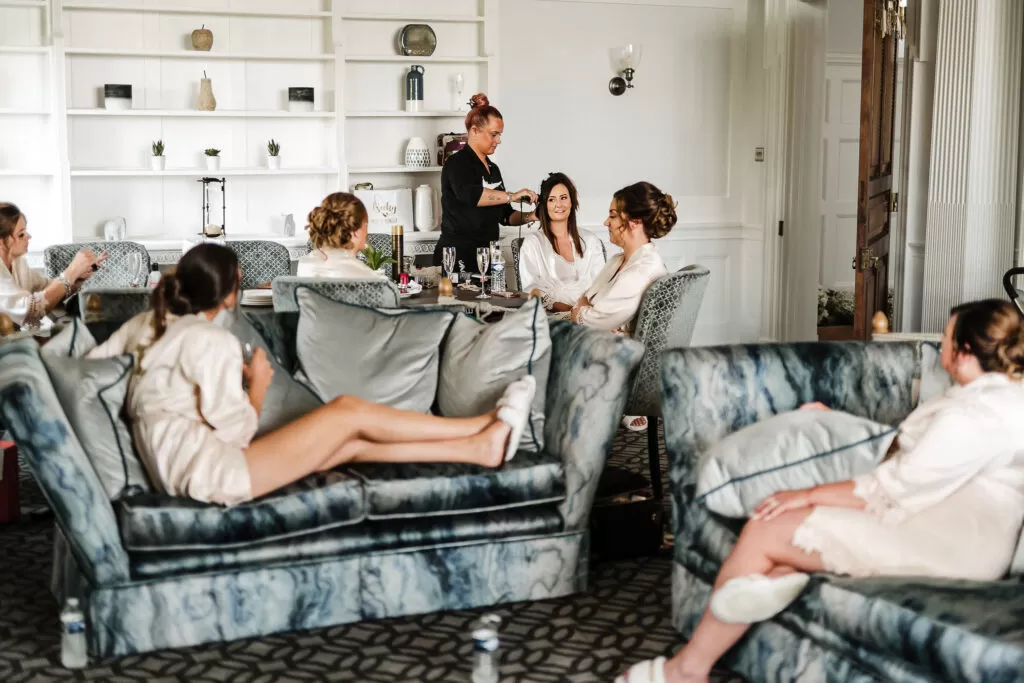
Flexibility & Contingency:
To know how to plan a wedding budget — and stick to it — you need to keep a portion of your pot reserved for unexpected expenses or last-minute additions.
It’s advisable to set about 10-15% of the total budget aside for unforeseen costs. These might include wedding insurance, vendor travel expenses, and legal/ceremony fees.
You might not need to dip into these funds, but having them there will provide you with plenty of security and reassurance, just in case!
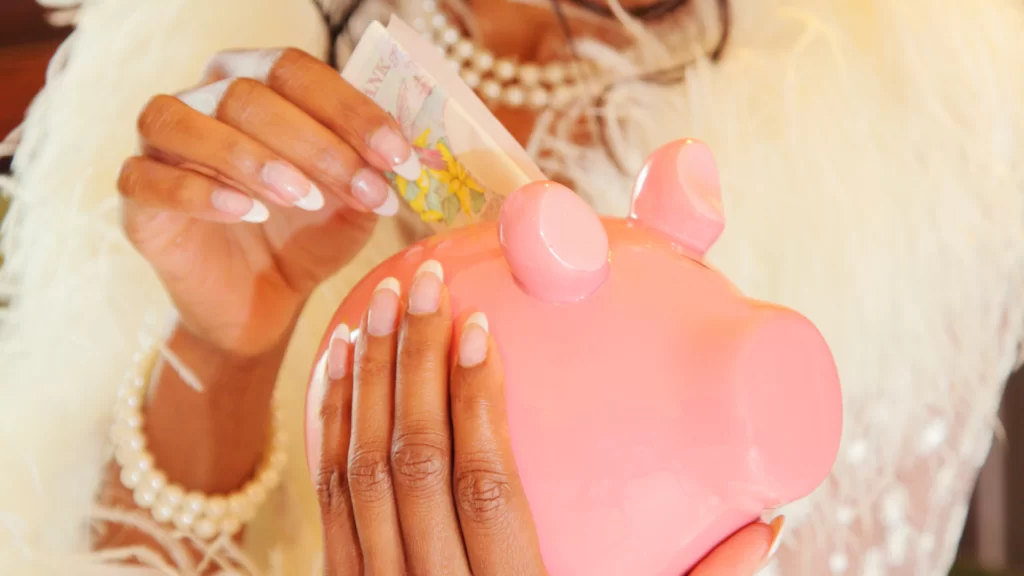
How to Budget for a Wedding: Track Your Spending:
Once you’ve finalised suppliers and services, it’s best practice to start tracking your spending.
Consider using spreadsheets and budgeting apps to monitor expenses, and ensure you stay within your allocated amounts for each category.
Remember, it’s easier to add to your plans than cancel them!

Consider Cost-Saving Measures:
If you’re setting a wedding budget, you might find it useful to explore ways to cut costs, without compromising quality.
Consider alternatives such as DIY projects, off-peak wedding dates, or opting for a smaller guest list to manage expenses.
Creating your own wedding favours, decorations, and flowers are all great ways to keep your expenses down, and they add a personal touch to your big day — it’s a win-win.
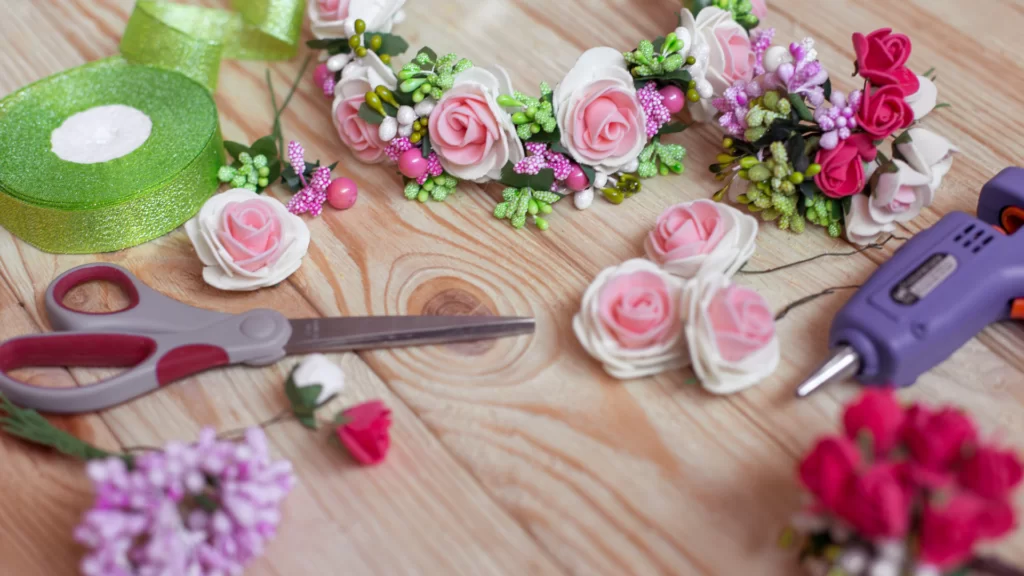
Be Realistic & Flexible:
Even the best laid plans can go awry!
While it’s essential to stick to your budget, be prepared for minor adjustments along the way.
Try to stay adaptable and be open to shifting funds between categories if necessary.
By having a plan for moments like these, you can minimise any unwanted stress, and enjoy the planning process much more.

Review & Revise:
We advise you to regularly review your budget as you progress in your planning.
Make adjustments if needed, especially if certain expenses are higher or lower than expected.
This will help you stay in control, and will make the process clear and easy — allowing you to enjoy the journey.
Setting a wedding budget requires thoughtful planning, communication, and a clear understanding of your financial capabilities.
Remember, the goal is to plan a celebration that reflects your love story, while ensuring financial stability as you start your journey together.

Weddings at Rutland Hall Hotel
At Rutland Hall Hotel, we have a variety of wedding options to suit different needs.
From intimate weddings in our Lakeview Lounge to grand affairs in our Pavillion Suite, we can tailor your wedding in line with both your budget and your dream.
We offer all-inclusive wedding packages, so you don’t have to worry about the finer details or, if you’d rather bring in your own entourage, we also offer venue hire only.
Contact our wedding team to book a show-round, and discover our stunning lakeside venue!
Alternatively, why not read our previous blog on creating a magical winter wedding?
